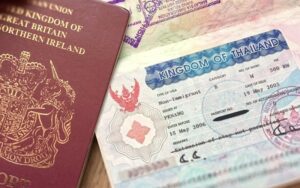Medical malpractice in Thailand is an important legal and healthcare issue that affects patients, medical professionals, and healthcare institutions. As Thailand continues to develop its medical services sector and gain recognition as a global medical tourism destination, the standards of medical care and accountability have become increasingly significant. Understanding medical malpractice laws in Thailand helps patients protect their rights while ensuring that healthcare providers adhere to professional and ethical standards.
Understanding Medical Malpractice
Medical malpractice occurs when a healthcare professional or medical institution fails to provide treatment that meets accepted medical standards, resulting in injury, harm, or death to a patient. In Thailand, malpractice may arise from misdiagnosis, delayed diagnosis, surgical errors, medication mistakes, improper treatment, or failure to obtain informed consent.
Not all adverse medical outcomes constitute malpractice. To establish a valid claim, the patient must demonstrate that the healthcare provider breached the standard of care and that this breach directly caused harm.
Legal Framework Governing Medical Malpractice in Thailand
Medical malpractice cases in Thailand are primarily governed by the Civil and Commercial Code (CCC), which addresses wrongful acts (torts) and contractual obligations. In certain circumstances, medical malpractice may also give rise to criminal liability under the Penal Code, particularly in cases involving gross negligence.
Additionally, healthcare professionals are regulated by professional bodies such as the Medical Council of Thailand, which oversees licensing, ethical conduct, and disciplinary actions.
Civil Liability for Medical Malpractice
Most medical malpractice claims in Thailand are pursued as civil cases. Under civil law, a patient may seek compensation for damages caused by negligence or breach of duty.
To succeed in a civil malpractice claim, the patient generally must prove:
-
The existence of a duty of care
-
A breach of that duty
-
A causal link between the breach and the injury
-
Actual damages suffered
Compensation may include medical expenses, loss of income, pain and suffering, and, in severe cases, compensation for permanent disability or death.
Criminal Liability in Medical Malpractice Cases
In certain cases, medical malpractice may lead to criminal charges, particularly when negligence is severe or results in serious harm or death. Criminal liability is less common but may apply where a healthcare provider’s conduct demonstrates reckless disregard for patient safety.
Criminal proceedings are handled separately from civil claims and may result in fines or imprisonment if the accused is found guilty. However, the burden of proof in criminal cases is higher than in civil proceedings.
Role of Informed Consent
Informed consent is a critical aspect of medical practice and malpractice claims in Thailand. Healthcare providers are required to explain the nature of treatment, potential risks, alternative options, and expected outcomes before obtaining the patient’s consent.
Failure to obtain proper informed consent may constitute malpractice, even if the medical procedure itself was performed competently. Proper documentation of consent is essential for both patient protection and healthcare provider defense.
Medical Records and Evidence
Medical records play a crucial role in medical malpractice cases in Thailand. Patients have the right to request copies of their medical records, which may be used as evidence in legal proceedings.
Expert medical opinions are often required to establish whether the standard of care was breached. Courts frequently rely on independent medical experts to assess complex medical issues and determine liability.
Statute of Limitations
Medical malpractice claims in Thailand are subject to statutory time limits. Under the Civil and Commercial Code, claims for wrongful acts must generally be filed within a specified period from the date the injured party becomes aware of the damage and the responsible party.
Failure to file a claim within the applicable limitation period may result in the loss of legal rights, highlighting the importance of timely legal advice.
Medical Malpractice and Medical Tourism
Thailand is a leading destination for medical tourism, attracting patients from around the world for procedures ranging from cosmetic surgery to complex medical treatments. While Thailand offers high-quality healthcare at competitive costs, foreign patients may face challenges in pursuing malpractice claims due to language barriers, unfamiliar legal systems, and jurisdictional issues.
Understanding legal rights and engaging local legal counsel are essential for foreign patients seeking redress for medical malpractice in Thailand.
Alternative Dispute Resolution and Complaints
Not all medical malpractice disputes proceed to court. Patients may file complaints with hospitals, professional councils, or relevant regulatory authorities. Mediation and settlement negotiations are also commonly used to resolve disputes more efficiently.
Administrative and professional disciplinary proceedings may result in sanctions against healthcare providers, even if civil compensation is not awarded.
Importance of Legal Representation
Medical malpractice cases are complex and often require specialized legal and medical knowledge. Engaging a qualified lawyer with experience in medical malpractice law is crucial for both patients and healthcare providers.
Legal professionals assist in evidence gathering, expert coordination, claim assessment, negotiation, and litigation, ensuring that cases are handled fairly and effectively.
Protection for Healthcare Providers
While patient rights are important, Thailand’s legal system also recognizes the need to protect healthcare providers from unfounded claims. Courts carefully examine evidence and expert testimony to distinguish between unavoidable medical risks and genuine negligence.
This balanced approach helps maintain trust in the healthcare system while ensuring accountability.
Conclusion
Medical malpractice in Thailand is governed by a legal framework that seeks to balance patient protection with professional accountability. Patients who suffer harm due to medical negligence have the right to seek compensation and justice, while healthcare providers are expected to adhere to established standards of care. As Thailand continues to grow as a medical hub, understanding medical malpractice laws and procedures is essential for patients, medical professionals, and institutions alike. With proper legal guidance, medical malpractice disputes can be addressed fairly, transparently, and in accordance with Thai law.






















